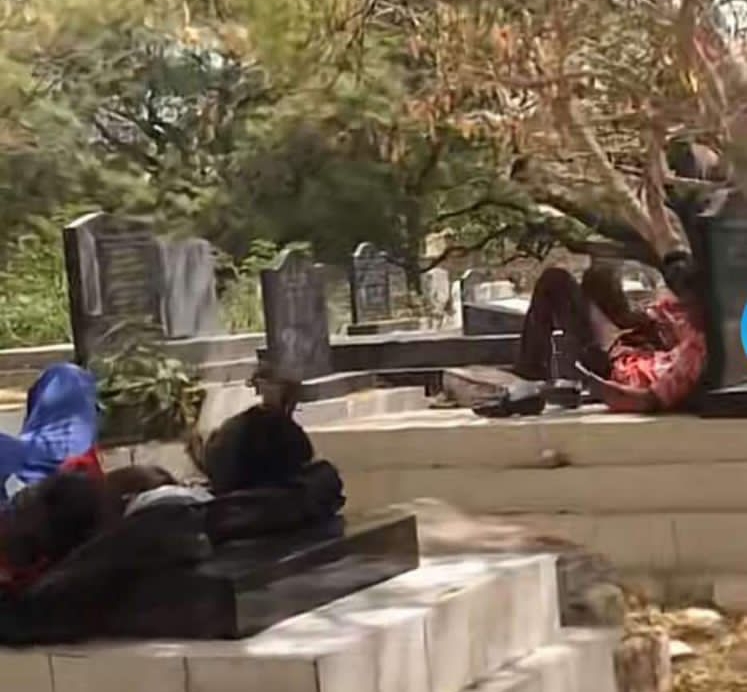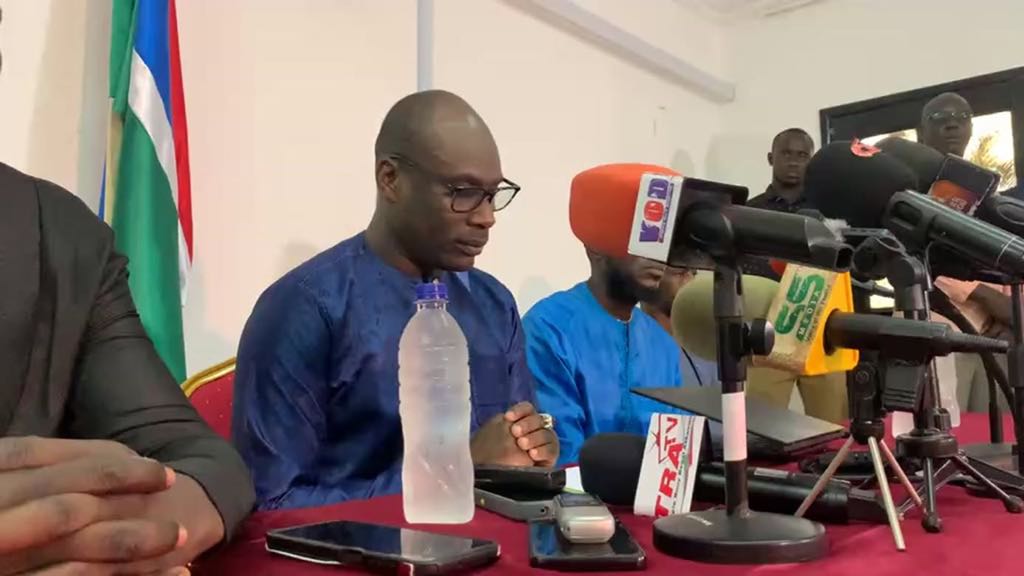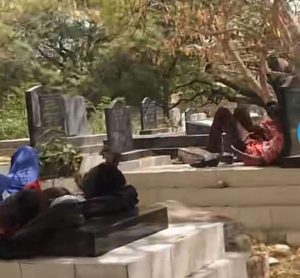Gambiaj.com – (BANJUL, The Gambia) – As the country grapples with the aftermath of a wave of arrests of young demonstrators on Thursday, Essa Mbye Faal, former lead counsel of the Truth, Reconciliation, and Reparations Commission (TRRC) and now leader of the SOBEYA party, issued a stern warning to the government: learn from the past, or risk repeating it.
In a passionate press conference held in Banjul on Friday, Faal invoked some of the darkest chapters in Gambia’s recent history to condemn the heavy-handed crackdown on peaceful protestors.
“We remember the United Democratic Party’s Femi Peters in 2010 when he was arrested, prosecuted, and sentenced for organizing_ a political event without a permit. We remember April 10–11 when our brothers and sisters were gunned down in the streets. We remember when Solo Sandeng was arrested… and how we later discovered his body somewhere in Tanji with a lot of the others severely tortured,” Faal said.
Referencing the 2016 protest movement that ultimately brought President Adama Barrow to power, Faal expressed dismay that similar tactics used during the Jammeh era were now resurfacing under the new administration. “This is not too long ago; this was just in 2016. It’s as if we have not learned from this,” he lamented.
Presidential Silence Draws Public Frustration
As criticism mounts over the arrests, one figure remains noticeably silent—President Adama Barrow. His failure to address the situation publicly has sparked growing frustration among Gambians seeking accountability and clear leadership in a moment of national tension.
“The president of our country was a member of the same political party,” Faal noted, referring to Barrow’s roots in the United Democratic Party (UDP). “He came to power mainly as a result of the Jammeh apprehension of the Public Order Act on Gambian civilians. After Solo Sandeng, Ba Ousainou Darboe and other members of the UDP went out to protest, they were equally arrested under that same terrible colonial law and sentenced to prison.”
Faal said if President Barrow genuinely believes that Darboe and others were acting heroically, then “it is a shame that what happened yesterday has happened.”
Call for Restraint and Leadership
Appealing for calm, Faal emphasized that the SOBEYA party is not calling for unrest but rather a peaceful and lawful resolution. “We are asking the president of this country to exercise his authority, under the Constitution, to ensure that this country is at peace,” he urged. “Measured actions that will bring about reflection from the people… That we can only progress if we respect others’ rights.”
He added that the burden of leadership now lies squarely with President Barrow. “It is his responsibility to bring about peace in this country. If he acts in a very harsh manner, it will draw unnecessary, unwarranted heightening of the situation. But if he acts in a measured manner… if he tempers the law as they understand it with the mercy that the situation deserves… then I do think the situation would change.”
Faal insisted his message was not intended to stoke division but to urge statesmanship. “I sit here not to cause trouble but to implore him and to show that the buck stops with him,” he said. “To show that The Gambia has the kind of leadership that everyone should be proud of… always ready to show leadership and take steps that strengthen our unity and foster peace.”
Legal Justifications and Lingering Questions
While the Ministry of Justice maintains that the arrests were conducted in accordance with the law, critics argue that legality alone is not enough. In a nation still recovering from two decades of autocracy, transparency and moral leadership remain vital.
“Until the government reveals who benefited from the sale of Jammeh’s assets, and until the president addresses the mounting anger, protesters say their calls for accountability will only grow louder,” said Faal.
He reminded the public of the Gambia’s small, interconnected nature, warning against divisions that serve no one. “There is no benefit to keeping those young people in jail for defying dictatorship to come out and protest,” he said. “We should equally hold these young people to the same standard for their heroism to go out and protest what they believe is wrong.”
Essa Faal’s remarks strike at the heart of a dilemma facing The Gambia nearly a decade after the fall of Yahya Jammeh: whether the promise of a “New Gambia” is still alive, or being eroded by old habits cloaked in new leadership.
As the country waits for a formal response from the presidency, the silence at the top continues to weigh heavily—on the protestors behind bars, the citizens demanding accountability, and a fragile democracy hoping not to repeat its own painful history.










